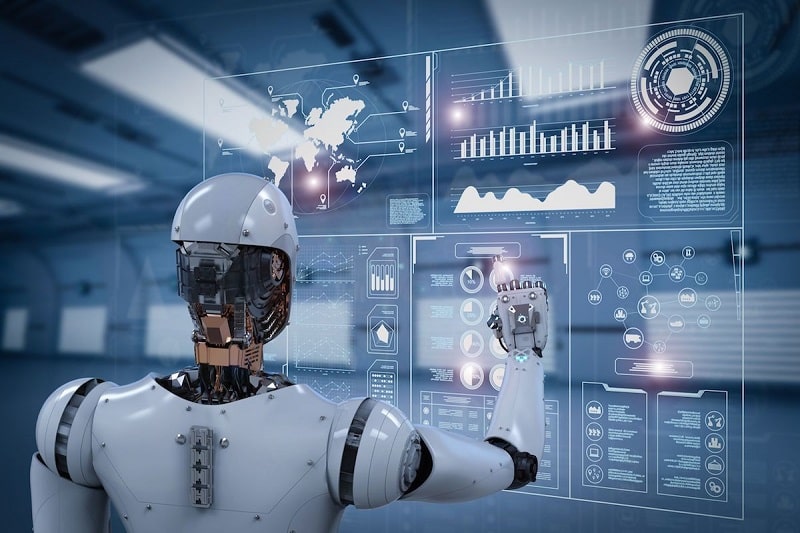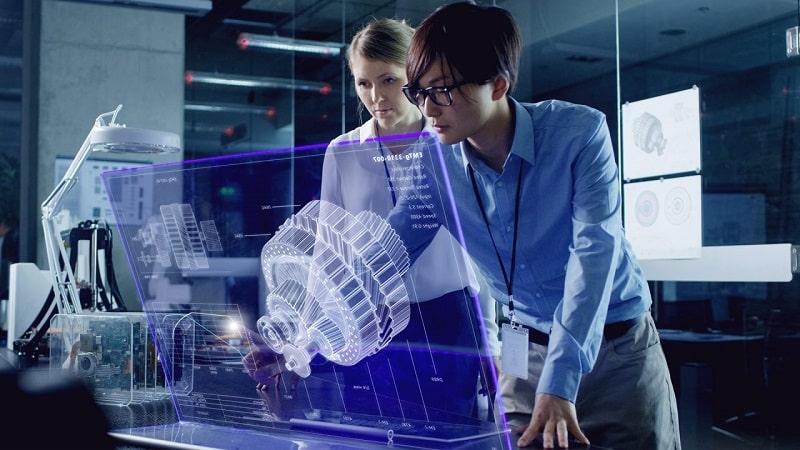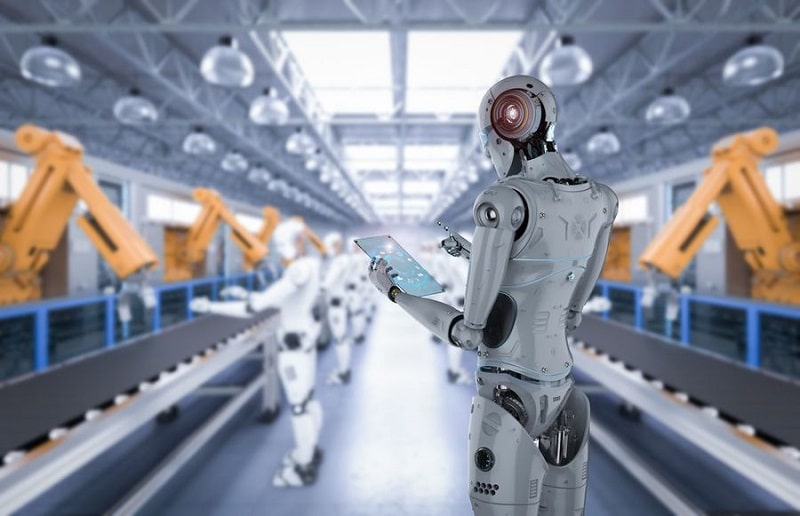Machines have been used in industries for over a century now. Therefore, automation is not new; it is just advancing and getting more effective. Today, a new generation of machines run by Artificial Intelligence are taking root in the labor market. The positive impact of Artificial Intelligence on jobs can already be felt across various industries.
However, not everyone is ready to embrace smart technology. There is also growing fear about Artificial Intelligence taking jobs - a worry that is not too far-fetched. Some predictions actually indicate that 80 million US jobs and 15 million UK jobs might be taken over by AI.

But the impact of Artificial Intelligence is not all doom; robots will bring benefits to employment and solve many business, economic, and social problems. Here’s how:
AI Will Replace and Create Jobs for People
With the widespread implementation of AI-powered automation, some human jobs will be lost. However, more jobs will also be created. A 2018 World Economic Forum report titled “The Future of Jobs” forecasts that automation will take up 75m jobs globally and create 133 million new jobs.
Therefore, predictions that machines will bring mass unemployment are mostly unfounded. The most likely result is that people will transition to the new opportunities that will be created and those jobs that will be changed by AI. And switching jobs can actually be a wise career move. Also, there are those jobs that are safe from automation. Healthcare, mechanical engineering, and architecture are some of the jobs that AI can’t replace as they require a human touch.
Furthermore, most economies will have to re-employ displaced workers to avoid high unemployment rates. If you are an employee, the best course of action is to invest in developing skills to improve your career prospects and thrive in the future job industry.

AI And Automation Is Creating Opportunities for Companies
Apart from Artificial Intelligence and employment, businesses also stand to gain from the implementation of AI. Already, AI technology is being used in personalizing product recommendations, finding production anomalies, spotting fraudulent transactions. And the latest AI developments promise more value for businesses. In a survey by McKinsey Global Institute, 47% of respondents said that their companies are utilizing one AI capability in their normal business processes.
Deploying AI will also help to boost the global economy and in turn, increase prosperity. With labor productivity slowly dropping in many European economies and US, Artificial Intelligence and automation can potentially reverse the decline and maintain a 2% productivity growth rate yearly according to McKinsey.
Aside from businesses and the global economy, AI is also expected to tackle societal problems. Smart technologies are already in use in medical research, climate change studies, and material science. Application of this tech in other areas too will help solve many societal challenges that we are facing today.

The Workplace of the Future Will Evolve as People Work With AI
Robotics is set to change the future workplace. With the integration of smart machines, workspaces and workflow will need to shift so that AI and humans can work together. For example, warehouses will need to re-design to accommodate robots and ensure there is safe human-machine interaction. In stores where self-checkout systems will be installed, cashiers can switch to checkout assistants responsible for troubleshooting the intelligent machines and answering customers’ questions. Implementation of these systems will, therefore, require a complete rethinking of the current workflows and workspaces.
Automation Technology Will Increase High-Wage Jobs
While many people fear that AI will lead to a loss of jobs, it will do the contrary by creating as many new jobs as it replaces. By handling repetitive tasks at the workplace, automation will spur the growth of value creation jobs. Case in point, there will always be a need for workers with STEM skills who can manage AI systems to ensure that all automated duties are done without any hiccups.
Currently, there are several jobs created by automation. For instance, the implementation of AI in the modern-day workplace has led to roles such as data engineer and data scientist. Individuals who take up these roles are essential because they analyze all decisions made by AI systems to eliminate any bias. Other careers in Artificial Intelligence include:
- Smart-system interaction experts: These are the professionals who develop machine behavior based on job-related employee behavior. Basically, this job borders on “increasing human intelligence by artificial means.”
- Transparency analysts: These are the people who categorize various types of opacity for AI system algorithms.
- Machine-relation managers: The professionals that encourage the widespread use of well-performing algorithms by businesses.

AI Will Increase Productivity in the Workforce of the Future
Apart from creating tons of lucrative AI jobs, automation tech will boost productivity in the workplace of the future. By tackling daily repetitive tasks, AI allows people to focus on creating new solutions that increase efficiency at the workplace.
Also, AI will enable people to concentrate on high-value activities as opposed to typical duties that can be automated. As such, workers will put their energies on tasks that require a lot of human collaboration and emotional connection. This way, employees will have a better experience in the workplace leading to higher productivity, which, in turn, leads to better customer experience.
Another way AI will increase job productivity is by improving time efficiency. By freeing up workers, this tech allows them to focus their energies on more important tasks that yield better results for their employing company.
AI in the Workplace: Workforce Conditions Will Improve
AI will help address many challenges at work. For example, when AI is leveraged during the hiring or performance evaluation process, applicants will be evaluated in a more honest and merit-driven way. Apart from that, hiring managers can use machine learning to comprehend how bias are getting into typical HR functions, thus enabling them to act fast.
AI will also stir a change in the workplace by ensuring that employees have appropriate safety gear when they go to work. Apart from that, it will help in the training of support staff to ensure that consistent responses are provided to clients.
When combined with other technologies, for example, IoT, AI will help in practical problem-solving at the workplace. For starters, combining IoT developments and AI helps people determine where there is likely to be a safety issue in a mine or company. Therefore, it enables them to act accordingly to avoid accidents that might lead to loss of lives. Apart from that, AI and IoT can transform the workplace by using sensors, existing data, and deductions to improve safety. In addition to these, AI can go a long way in boosting sustainable farming.
Artificial Intelligence and Jobs in the Future
These are some of the changes you can expect to see in the workplace in the coming days. And despite the half-hearted embrace, the future of Artificial Intelligence in tomorrow’s workplace shines brighter than ever. As such, it makes sense to acquaint yourself with necessary skill sets to ensure that you survive the inevitable AI revolution. For those in leadership positions, ensure that you are responsible and mindful as you implement AI in your workplaces to create enough opportunities for everyone.